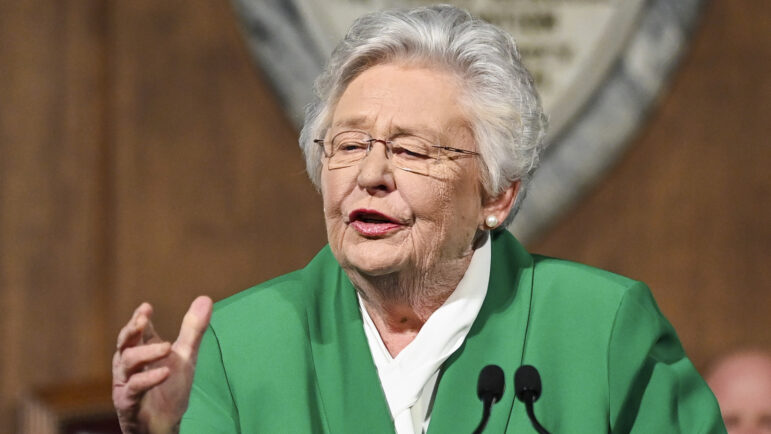MONTGOMERY, Ala. (AP) — Alabama has placed new restrictions on assistance with absentee ballot requests, making it illegal to return another person’s ballot application and making it a felony to pay someone to distribute or collect applications.
Alabama Gov. Kay Ivey on Wednesday announced she had signed the bill into law a day after it was given final approval in the Alabama Legislature.
“Here in Alabama, we are committed to ensuring our elections are free and fair,” Ivey said in a statement. “Under my watch, there will be no funny business in Alabama elections.”
Republicans in the Alabama Legislature had named the bill as a key priority for the year and aimed to get it in place before the November election. Republicans said it is needed to combat voter fraud through “ballot harvesting,” a term for the collection of multiple absentee ballots. Opponents argued that there is no proof that ballot harvesting exists and called it an attempt to suppress voting by absentee ballot.
“SB1 and bills like it are just another form of voter suppression that do nothing to protect the ‘integrity’ of our elections but do a great deal to make it harder for voters with disabilities to cast their ballot,” the League of Women Voters of Alabama said in a Wednesday statement about the legislation. The group said that “voter assistance is not a crime and should not be treated as such.”
The new law makes it a misdemeanor to distribute an absentee ballot application that is prefilled with information such as the voter’s name. It also says that no one other than the voter applying for an absentee ballot can return the application to their county’s absentee election manager. Absentee ballot applications can be returned in person or by mail or commercial carrier.
It also makes it a felony to give, or receive, a payment or a gift “for distributing, ordering, requesting, collecting, completing, prefilling, obtaining, or delivering a voter’s absentee ballot application.”
“Free and fair elections are the foundation of our constitutional republic. The passage of SB1 signals to ballot harvesters that Alabama votes are not for sale,” Alabama Secretary of State Wes Allen said in a statement.
The new Alabama law lists an exemption stating that voters who require assistance because of blindness, disability, or inability to read or write may be given assistance by an individual of the voter’s choice.
A federal judge in June blocked a similar Mississippi law from taking effect that named a short list of people who can “collect and transmit” an absentee ballot. The judge wrote that the Mississippi law violates the Voting Rights Act, a federal law that says any voter who is blind, disabled or unable to read may receive assistance “by a person of the voter’s choice.”

